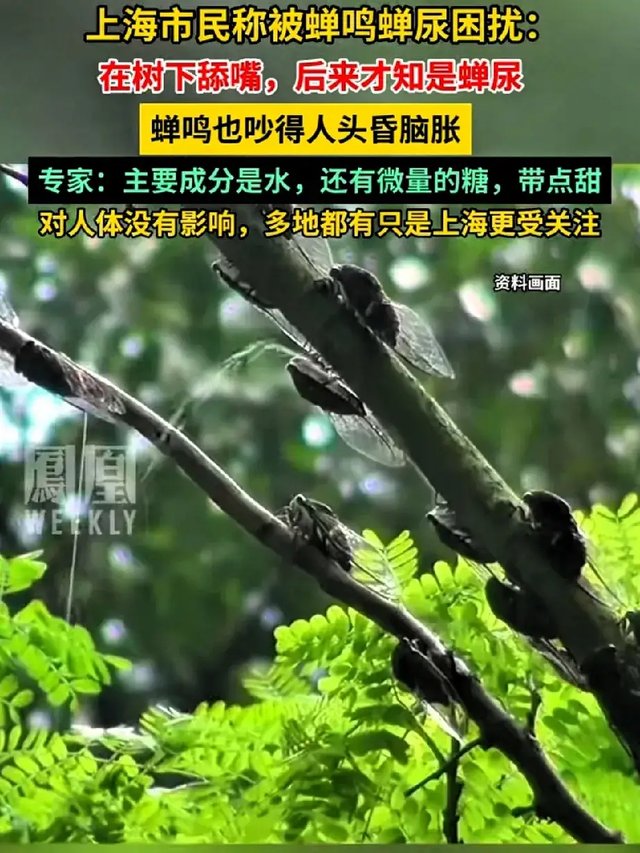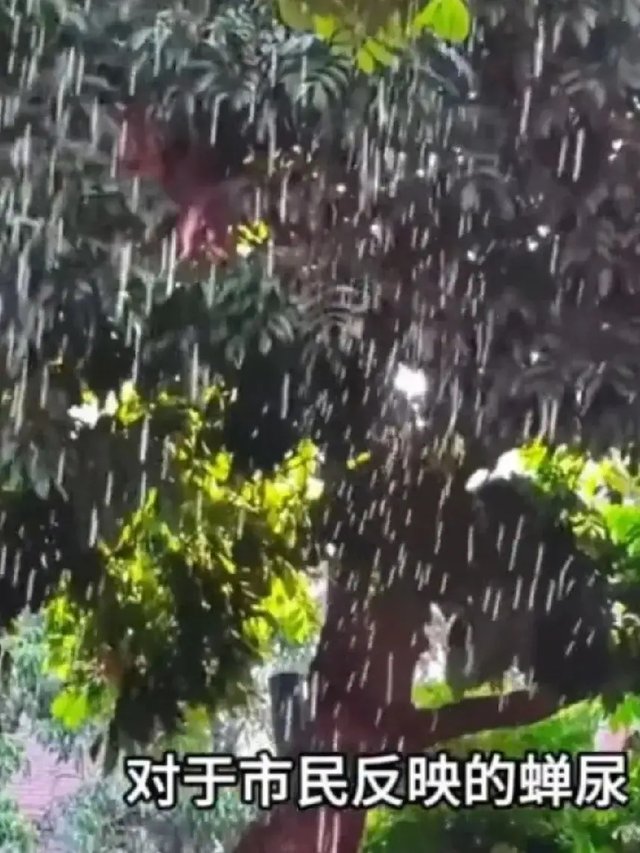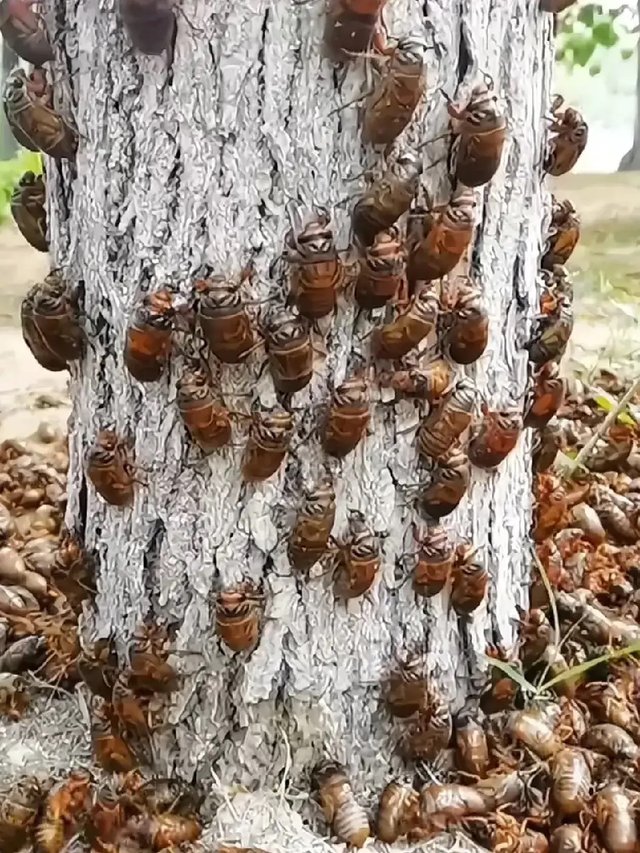There are so many cicadas in the trees in Shanghai
There are so many cicadas in the trees in Shanghai. When people pass by under the trees, they might think it's raining. Their faces get wet and their mouths taste sweet. Looking up, they find that it's actually the cicadas urinating all at once.
I'm not making this up. If you search for information about cicadas in Shanghai, you'll find that they've overrun the place.
Experts say this year is a "cicada boom year", which is why so many cicadas have emerged.
Coincidentally, people in Shandong love to eat cicadas. This summer, there are even more cicada - catchers in Shandong than there are cicadas. They complain that there aren't enough cicadas in the trees and have even dug out all the cicada nymphs underground.
It's also a boom year, but why haven't all the cicada nymphs in Shandong come out?
People in Shanghai have come up with many ways to get rid of cicadas. It would be great if all these cicadas flew to Shandong. People in Shandong have a single - solution method: deep - fry them in a pan. They can even sell the surplus ones for money.
Some people have proposed a good idea: let people from Shandong come to Shanghai to catch cicadas. But how is that possible?
The average salary in Shanghai is higher than that in Shandong. Would it work if people in Shanghai shared some of their salaries with those in Shandong?
Moreover, some workers' pensions range from 10,000 to 20,000 yuan, while elderly farmers only receive a subsidy of 100 to 200 yuan. Would it be feasible to take some of the workers' pensions to supplement the farmers?



这段观察很有趣也挺现实,从蝉的“泛滥”引出了区域之间资源、需求和利益的不平衡问题。上海蝉多到像下雨,而山东人却因为喜欢吃蝉、蝉资源不够而忙着挖蝉蛹,这种供需错位的现象确实耐人寻味。
“蝉盛年”本是自然周期现象,但不同地区应对的方式却截然不同——上海在想怎么除掉,山东在想怎么多抓点。看似荒诞的建议“让山东人来上海捉蝉”,背后其实折射出的是人口流动、收入差距、城乡差异等深层次问题。
不过,也正因为这种差异,让我们意识到——资源在不同区域的价值是不同的,关键是有没有机制和渠道去调节。不一定非得让工资或养老金补贴来解决问题,而是可以思考有没有更可行、更市场化的方式去“让蝉飞一程”,比如通过商业合作、生态农业项目等实现互利。
蝉的问题只是表象,更值得我们关注的是背后的逻辑与结构。